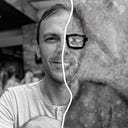The Allegory of Applied Mathematics
You’re wrong. I’m wrong. Everyone’s wrong. But, more than that, we should strive to be wrong. Let me explain.
Our popular understanding of the world, including consciousness, life’s meaning, and even the universe as a whole, is dictated by a vocal minority — by people coerced into saying something or those with an intense desire to assert their opinions. (Don’t worry, the subtle irony has not escaped me.) What’s worse is that people with strongly held views often have the most extreme views that are stated with authority.
However, the silent majority of scientists are what we might call everyday pragmatists — they get on with their work and have no opinion to declare on deeply philosophical matters. Isaac Newton himself famously dodged questions about why his universal theory of gravity worked — he probably wouldn’t even have written down things like hypotheses non fingo (“I frame no hypothesis”) at all had people not bothered him endlessly about it. These were questions his theory was not prepared to answer, and he knew that. With his immense influence, he could have easily swayed the opinions of other scientists and the masses by making sweeping statements about the nature of reality. But he didn’t.
Isaac Newton was an applied mathematician. He identified a part of the world, abstracted away all the details, created a model for it, and finally invented a mathematical theory to study it. For hundreds of years, and still to this day, we understand and control a large part of the world through the lens of a simple mathematical picture we know is wrong.
The amusing thing about this tale is that Isaac Newton himself is a model — a simplified story about an otherwise infinitely complex life. No story or theory about him can capture all of the complexity of his life and influence. But, moreover, why would we want that? For something that could achieve the task would be useless — a mere replica of all the complexity we demanded be reproduced. Would you like to replay the 84 years of Newton’s life and beyond to ensure the full truth had been captured? This is what absolute truth wants to be. Yet, that is unattainable and, ultimately, undesirable.
The same can be said about anything. The problem is, people generally think things have simple answers. In a sense they do, but only in our cartoon pictures of the world. These black and white pictures often have sharp lines called laws separating false dichotomies. When we have a question and ask why, why, why, the chain must end at the boundary which is held to be the ultimate authority. And, more often than not, the level of detail required is not captured by the model constructed — so we end up with a lie no one intended.
The lie is formed because there is no real line separating black and white — there are infinitely many shades of grey. This is not a suggestion that we capture every minute detail of it — that wouldn’t be helpful. What we ought to do is accept it, and the fact that progress is made through working assumptions we know to be untrue and willing to be amended when it becomes prudent to do so.
The acceptance of this underlies the beauty of applied mathematics. It’s kind of an unspoken credo. Understanding and controlling the world requires models of its features that simplify them, if only by what they ignore, in such a way to be useful. Taking up this torch is remarkably easy once you are oriented. Of course, the challenge is to find the simplicity in the world. This is the art of applied mathematics. We build model worlds to penetrate the complexity of life, to carve away details irrelevant to the matter at hand, to reveal a mechanism for understanding, and to see beauty not in how the world is, but how it could be.
The philosophy of applied mathematics is implicitly meta-normative in the sense that what one ought to do is strive to create guides for others in the most useful form possible. In this view, all of science, philosophy, and other human intellectual enterprises are frameworks for writing guidebooks to explore features of the world. These guides are stories, not compendia filled with minutiae of the world, but parables meant to enhance our understanding and control over it.
